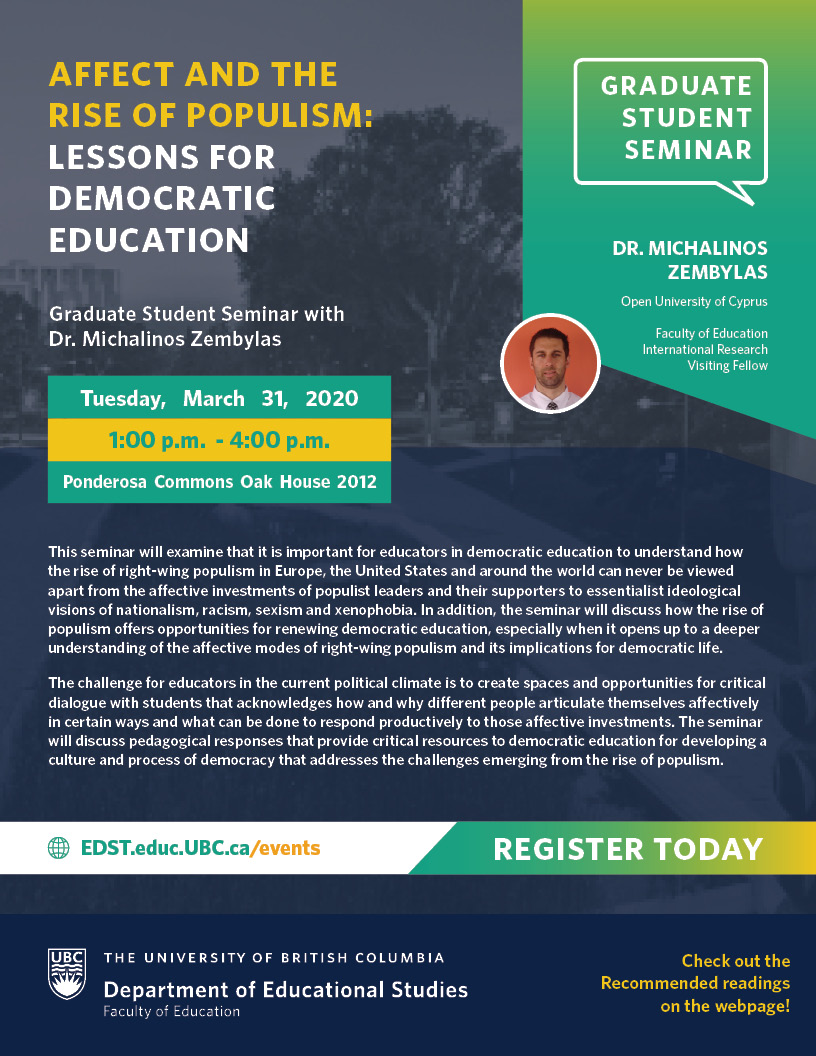
Seminar title: Affect and the Rise of Populism: Lessons for Democratic Education
Speaker: Dr. Michalinos Zembylas, Open University of Cyprus
Date of event: Tuesday, March 31, 2020
Location of event: Ponderosa Commons Oak House Room 2012
Time of event: 1-4pm
Abstract + Recommended readings: below the form
Abstract: This seminar will examine that it is important for educators in democratic education to understand how the rise of right-wing populism in Europe, the United States and around the world can never be viewed apart from the affective investments of populist leaders and their supporters to essentialist ideological visions of nationalism, racism, sexism and xenophobia. In addition, the seminar will discuss how the rise of populism offers opportunities for renewing democratic education, especially when it opens up to a deeper understanding of the affective modes of right-wing populism and its implications for democratic life. The challenge for educators in the current political climate is to create spaces and opportunities for critical dialogue with students that acknowledges how and why different people articulate themselves affectively in certain ways and what can be done to respond productively to those affective investments. The seminar will discuss pedagogical responses that provide critical resources to democratic education for developing a culture and process of democracy that addresses the challenges emerging from the rise of populism.
Recommended readings (all available for download via the UBC Library):
Zembylas, M. (2019). The affective modes of right-wing populism: Trump pedagogy and lessons for democratic education. Studies in Philosophy and Education, DOI:10.1007/s11217-019-09691-y
Zembylas, M. (2019). The affective dimension of far right rhetoric in the classroom: The promise of agonistic emotions and affects in countering extremism. Discourse: Studies in the Cultural Politics of Education, DOI.: 10.1080/01596306.2019.1613959
Zembylas, M. (2019). The affective grounding of the post-truth: Pedagogical risks and transformative possibilities in countering post-truth claims. Pedagogy, Culture and Society, DOI.: 10.1080/14681366.2019.1598476
